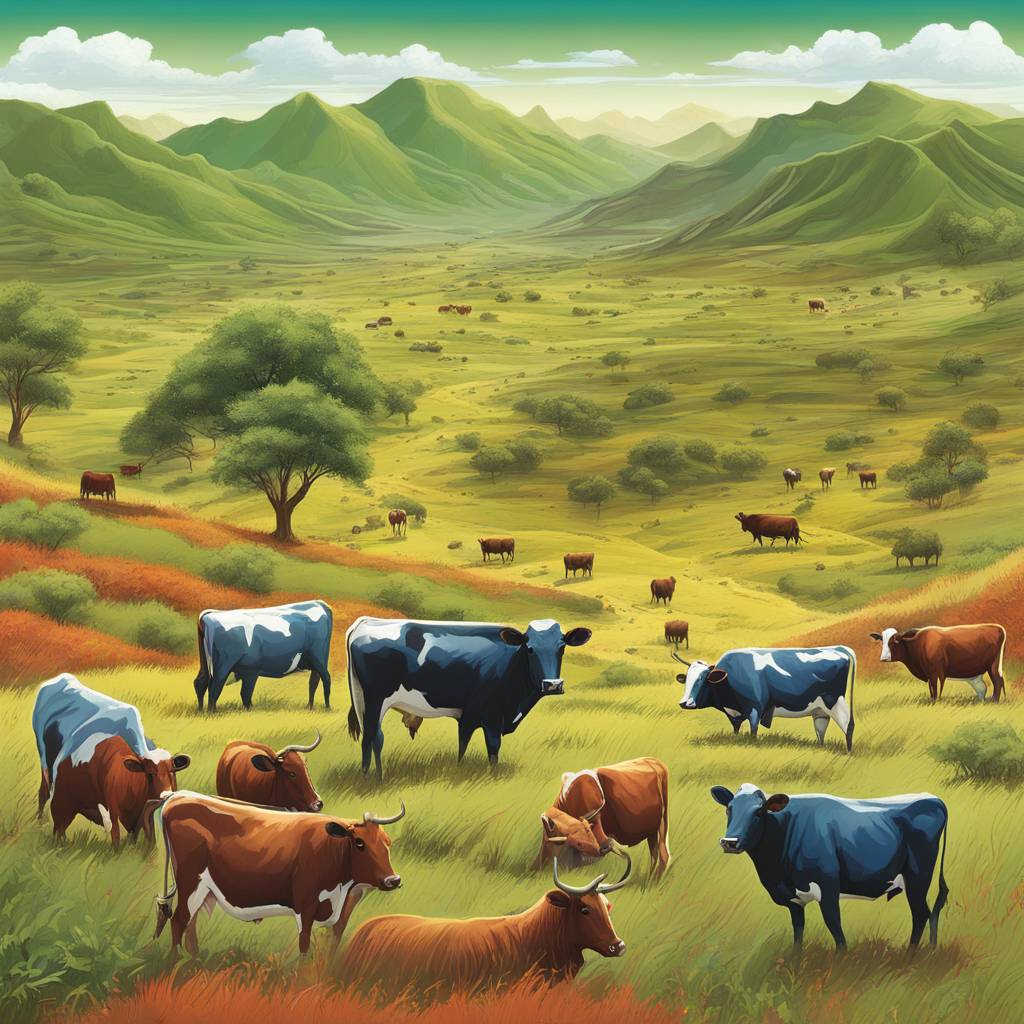Cattle grazing behavior can vary significantly based on individual personalities, impacting the distribution of animals on rangelands and influencing overall animal health and environmental conditions. By recognizing and understanding these differences, ranchers can select herds that best meet grazing needs, potentially leading to improved rangeland health and ecosystem functioning. Cattle disturbances like grazing can be beneficial for vegetation in rangelands, but uneven grazing can have negative impacts on water quality, soil health, and habitats. Optimizing grazing patterns can enhance the ecosystem while reducing the risk of wildfires.
Research conducted at the UC Sierra Foothill Research and Extension Center tracked 50 pregnant Angus and Hereford beef cows fitted with GPS collars to study individual grazing patterns. The cows showed consistent and distinct grazing behaviors, with some preferring to stay near water and rest sites while others ventured into higher elevations and farther from water sources. Age and pregnancy status did not significantly affect grazing patterns, but personality traits such as nomadic behavior were observed in certain cows based on reactions during handling interactions. Understanding these personalities can help ranchers make more informed decisions in selecting herds that align with their grazing needs.
Moving forward, the research findings suggest the importance of considering individual cow behaviors and personalities in managing livestock and rangeland areas. By identifying wanderers and homebodies among cattle herds, ranchers can optimize grazing practices and improve the efficiency of landscape management. This approach could potentially save money and resources by selecting cattle that are better suited to specific grazing environments. The research highlights the potential benefits of incorporating animal behavior insights into ranching practices and emphasizes the importance of understanding the mind of the animal in addressing challenges and improving overall herd dynamics.
The research also sheds light on the need for a shift in perspective within animal science, emphasizing the significance of understanding animal behavior in addressing complex challenges in livestock management. By focusing on individual personalities and grazing preferences, ranchers can enhance their understanding of herd dynamics and optimize grazing practices without relying on expensive high-tech solutions. The study underscores the value of considering animal behavior in livestock management practices and suggests that a deeper understanding of herd dynamics and behavior could lead to more effective and sustainable approaches to rangeland and cattle management.
Overall, the findings from this research have the potential to inform and improve ranching practices by highlighting the importance of individual cow personalities in influencing grazing behavior and distribution on rangelands. By recognizing and understanding these personality traits, ranchers can make more informed decisions in selecting herds and optimizing grazing patterns. This research opens new opportunities for enhancing livestock management strategies through a better understanding of animal behavior and suggests that a focus on individual personalities could lead to more sustainable and efficient practices in rangeland and cattle management.






